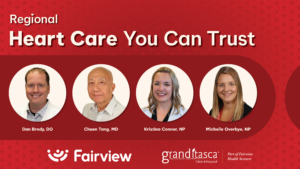We can’t just magically zap up the benefits of vitamins and minerals. Our bodies need help, and sometimes other vitamins and minerals are the perfect helpers. Like any mutualistic symbiotic relationship, certain nutrients give each other a boost when paired. This can be especially beneficial when it comes to vital vitamins, like vitamin D, which can be harder to come by in the darker months on the Iron Range. Here are a few pairings to keep in mind and easy ways to pair them.
Vitamin D & Calcium
Both of these nutrients are essential for strong bones. Calcium keeps our muscles, including our heart, and nerves working correctly. Vitamin D helps us absorb calcium properly.
Here are some foods high in calcium from the National Institute of Health.
Here are some foods high in vitamin D from the National Institute of Health.
Of this list, here are the ones packed with both calcium and vitamin D.
- Fortified dairy products, such as milk, yogurt, and cottage cheese
- Canned fish, such as sardines and salmon
- Fortified orange juice
- Fortified cereal
- Cheese
To really boost your nutrients, pair these together:
- Oatmeal with milk
- Salmon with yogurt dressing
- Omelet with salmon and cheese
- Tuna salad with greek yogurt
Vitamin C & Iron
Iron is super important for your body. Not only does it keep you energized, but it also helps you absorb collagen. This nutrient keeps muscles and bones strong. According to the US National Library of Medicine, “Collagen is the most abundant protein in animals, and the major component of connective tissue.”
Our body is great at absorbing the nutrients from heme iron sources, such as meats and seafood. It needs an extra hand when it comes to nonheme iron, though. That’s where vitamin C comes in. It helps pull out the iron in nuts, beans, egg yolks, vegetables, and fruits.
Here are some iron-rich foods.
A few vitamin C-packed foods.
Which foods make both lists?
- Spinach
- Green peas
- Broccoli
- Tomato
- Potato
Here are some smart pairings.
- Cereal or oatmeal topped with strawberries
- Cooked broccoli with a side of meat
- Legume or tuna salad with peas
- Fajitas with peppers and beef/tofu
Sodium & Potassium
In this day and age, it is not hard to get enough sodium. It’s an easy nutrient to overdo. So where does potassium come in? According to a Harvard article, potassium is a good sidekick to sodium because it helps the kidneys handle a sodium surplus better. Your chance of high blood pressure decreases when your sodium and potassium intake is more balanced.
Foods high in potassium.
So if you’ve just consumed a very salty meal, it wouldn’t hurt to eat something from this list as well. Dried apricots, anyone?
Happy Pairings
Getting the most out of your food doesn’t have to be complicated. Using the above charts, you can easily piece together snacks and meals that boost nutrients. We hope this helps you along your health journey. If you have further questions, we’d love to answer them. You can discuss them with your primary care provider or chat with Fairview Range’s dietitian, Liz Brownlee, RD, LD.


